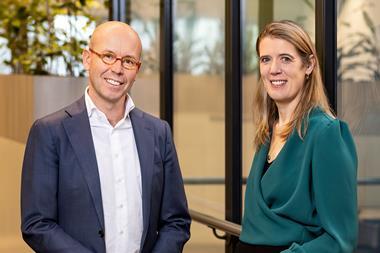Conventional wisdom says its not possible to construct an Anglo Saxon-style pension fund in Germany under the current fiscal, employment and regulatory regime. This is, however, a misnomer. Although there is no natural legal framework facilitating such an approach, there is the contractual trust arrangement (CTA) .
The CTA is an artificial legal construction which, via a series of legal pledges between the employer, the employee and a separate custodian of the created pension fund, makes it possible to overcome the limitations of German law and establish what is effectively an Anglo Saxon-style trust.
This is a model which has created a great deal of interest in Germany, and several big name employers have already adopted a similar approach to enable unrestricted funding of their occupational pension schemes. Examples include Shell, Daimler-Chrysler and Hewlett Packard.
Prior to the newly arrived CTA, it was possible to establish a funding vehicle which facilitated the full funding of pension promises, by using a combination of the Support Fund and the Pensionskasse, to create what is called a reinsured support fund. Companies such as IBM have such a system in place.
The key properties of a CTA
The CTA allows the construction of a ‘pension fund’, which operates like a UK style trust fund, with a fund custodian or, in UK terms, a trustee body. The CTA does not however exist under a regulatory framework as established, for example, in the UK. This gives the employer a free rein in designing the governance of the CTA, including the composition of the trustee body. But this does not mean that a CTA is developed as an exclusively employer-friendly institution – best practice and German employment law culture often determines that a UK style governance is adopted, including employee representation.
Where a CTA does provide a completely free reign is with regard to the investment of the fund assets. There are, quite simply, no restrictions in place. The importance of this should not be underestimated, and nor should the paradigm change that this represents. This is far removed from the restrictive environment normally faced by German companies who wish to externally fund their pension promises. This is a difficult transition for companies especially if they wish to ensure that an appropriate investment strategy for a company’s level of risk tolerance is adopted.
Encouragingly, companies are realising the importance of assessing their risk tolerance in determining the aggressiveness of their investment strategy. We find this risk tolerance assessment is best facilitated by the use of asset-liability modelling techniques involving modern portfolio theory. It is of interest to note that this informed approach to investing has often led to high equity content in the strategic asset allocation, typical of pension funds elsewhere in the western world.
One of the reasons that bigger, typically multinational companies have been at the forefront of adopting CTAs is its recognition under US GAAP as plan assets. It is in the interest of multinationals adopting a worldwide accounting methodology such as IAS 19, to use financing vehicles in countries recognised as plan assets. This leads to a shortening of their balance sheets, as the assets and liabilities are netted off against one another. Although the multinationals may be leading the way, German-owned companies are following suit for a variety of reasons, including a tendency for international accounting standards to be adopted for company reporting. There is also some evidence of pressure being exerted by the financial markets – there is a preference for investment in companies that can demonstrate external financing of their pension promise.
Perhaps the only downside of the CTA is that it is not a tax advantageous financing tool. Ideally such a vehicle would be taxed on an EET basis. There are some tax exemptions that can be taken advantage of but the overall picture is not as favourable as that enjoyed in the UK because of limitations in the deductibility of the annual provisions to the reserves according to German income tax law.
Norbert Rössler is managing director of Buck Heissmann in Wiesbaden . This is based on a talk given to the Forum 2000 seminar in Munich held by Allianz Asset Management












